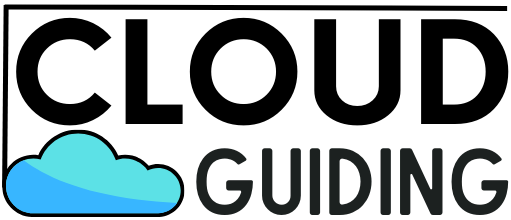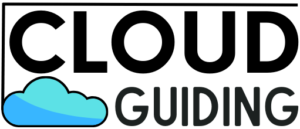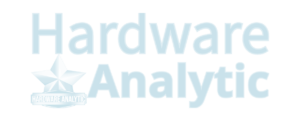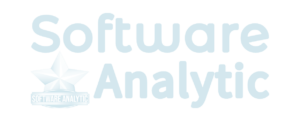Software as a Service helps businesses to access and use software applications over the Internet. This article discusses the importance of SaaS, its application, benefits, limitations, and market value.
What is Software as a Service?
Software as a Service (widely known as SaaS) is a cloud computing-based software delivery model where software applications are provided to users over the Internet on a subscription basis. With SaaS, users do not have to purchase, install or maintain any software or hardware infrastructure to use the software solution. Instead, the software provider hosts the application on their servers and delivers it to users online.
Cloud applications are generally accessed through a web browser or mobile application and can be used from any device with an internet connection. Its providers offer a range of software applications, including customer relationship management, enterprise resource planning, and human resource management.
Why is Software as a Service important?
Some importance of Software as a Service is given below:
Lower costs
SaaS destroys the necessity for businesses to purchase, install, and maintain expensive Software and hardware infrastructure. The providers typically offer software applications on a subscription basis, which means that businesses only pay for what they use. It makes the software solution cost-effective, especially for small and medium-sized businesses with limited budgets.
Automatic updates
The providers update their software applications automatically, meaning businesses consistently have entry to the latest features and functionalities. It eliminates the need for businesses to manually update their Software, which can be time-consuming and expensive.
Scalability
SaaS applications can be easily climbed up or down, relying on the changing needs of the business. Businesses can fast and efficiently add or remove users, features, and functionalities without investing in new Software or hardware infrastructure.
Accessibility
SaaS applications can be accessed from anywhere, on any device with an internet connection. It means businesses can provide their employees remote access to the Software, increasing productivity and collaboration. Additionally, the applications can be accessed by customers, partners, and suppliers, improving communication and business relationships.
Application of Software as a Service
Some applications of Software as a Service are given below:
Customer Relationship Management (CRM)
CRM software permits businesses to manage their interactions with customers and prospects, including sales, marketing, and customer service activities. SaaS CRM software is popular because it is easy to use, scalable, and gives businesses real-time visibility into customer interactions.
Human Resource Management (HRM)
HRM software helps businesses manage employee data, including recruitment, payroll, benefits, and performance evaluations. SaaS HRM software is popular because it is cost-effective, easy to use, and gives businesses real-time visibility into their workforce.
Enterprise Resource Planning (ERP)
ERP software helps businesses manage their core business processes, including finance, inventory, and supply chain management. SaaS ERP software is popular because it is scalable, cost-effective, and gives businesses real-time visibility into their operations.
Project Management
Project management software permits businesses to plan, track, and manage their projects, including tasks, timelines, and budgets. SaaS project management software is popular because it is easy to utilize, available from anywhere, and gives businesses real-time visibility into their project progress.
Benefits of Software as a Service
Some benefits of Software as a Service are given below:
Data security
Cloud software service providers typically offer advanced security features, including data encryption, firewalls, intrusion detection, and precluding systems. It means businesses can be confident that their data is secure, even when stored and processed in the cloud.
Reliability
SaaS providers typically offer high reliability and uptime, meaning businesses can rely on the Software to be available when needed. Additionally, the providers often have backup and disaster recovery systems, which can help businesses recover quickly during an outage or disaster.
Better collaboration
SaaS applications often include collaboration features like document sharing, messaging, and project management tools. It means that employees can work together more effectively, regardless of location. Applications are typically deployed quickly and easily, with little or no need for businesses to install or configure the Software.
Competitive advantage
SaaS applications can give businesses a competitive advantage by enabling them to quickly and easily adopt new technologies and functionalities. Businesses can be more elegant and responsive to changing market conditions and customer needs.
Limitation of Software as a Service
Some limitations of Software as a Service are given below:
Limited customization
SaaS applications are designed to be used by many customers, which means that they may not be customizable to satisfy the exact needs of individual businesses. It can be a limitation for businesses that require customized software applications.
Data security concerns
Although SaaS providers offer advanced security features, some businesses may still be concerned about their data’s security when stored and processed in the cloud. It is especially true for businesses that deal with acute data, such as financial or medical records.
Subscription costs
While SaaS applications can be cost-effective, subscription costs can count over time, especially for businesses requiring access to multiple software applications. Additionally, businesses may face unexpected costs if they exceed the usage limits or require additional features.
Limited control over software updates
SaaS providers typically update their software applications automatically, meaning businesses have limited control over when and how the Software is updated. It can be a limitation for businesses that require a lofty degree of control over their software applications.
How are growing global Software as a Service (SaaS) markets?
Globe News Wire said the global Software as a Service (SaaS) market value was USD 167.53 billion in 2022. It is expected to reach USD 462.94 billion by 2028, with the market growing at a compound annual growth rate (CAGR) of 18.5 % from 2022 to 2028.
Key Companies
Some prominent global Software as a Service (SaaS) market players include ADP LLC, Amazon.com Inc, Google Inc, IBM Corporation, Microsoft Corporation, Oracle Corporation, Salesforce.com Inc, SAP SE, Fujitsu Limited, and Workday Inc.
Conclusion
It has revolutionized how businesses access and use software applications. It offers considerable benefits, including cost savings, scalability, ease of use, and automatic updates. Due to high costs or infrastructure requirements, it has also enabled businesses to access previously inaccessible software applications. Its limitations include dependence on internet connectivity, limited customization, and data security concerns. Despite these limitations, the benefits of SaaS far outweigh the drawbacks, making it an increasingly popular alternative for businesses of all sizes and industriousness.
